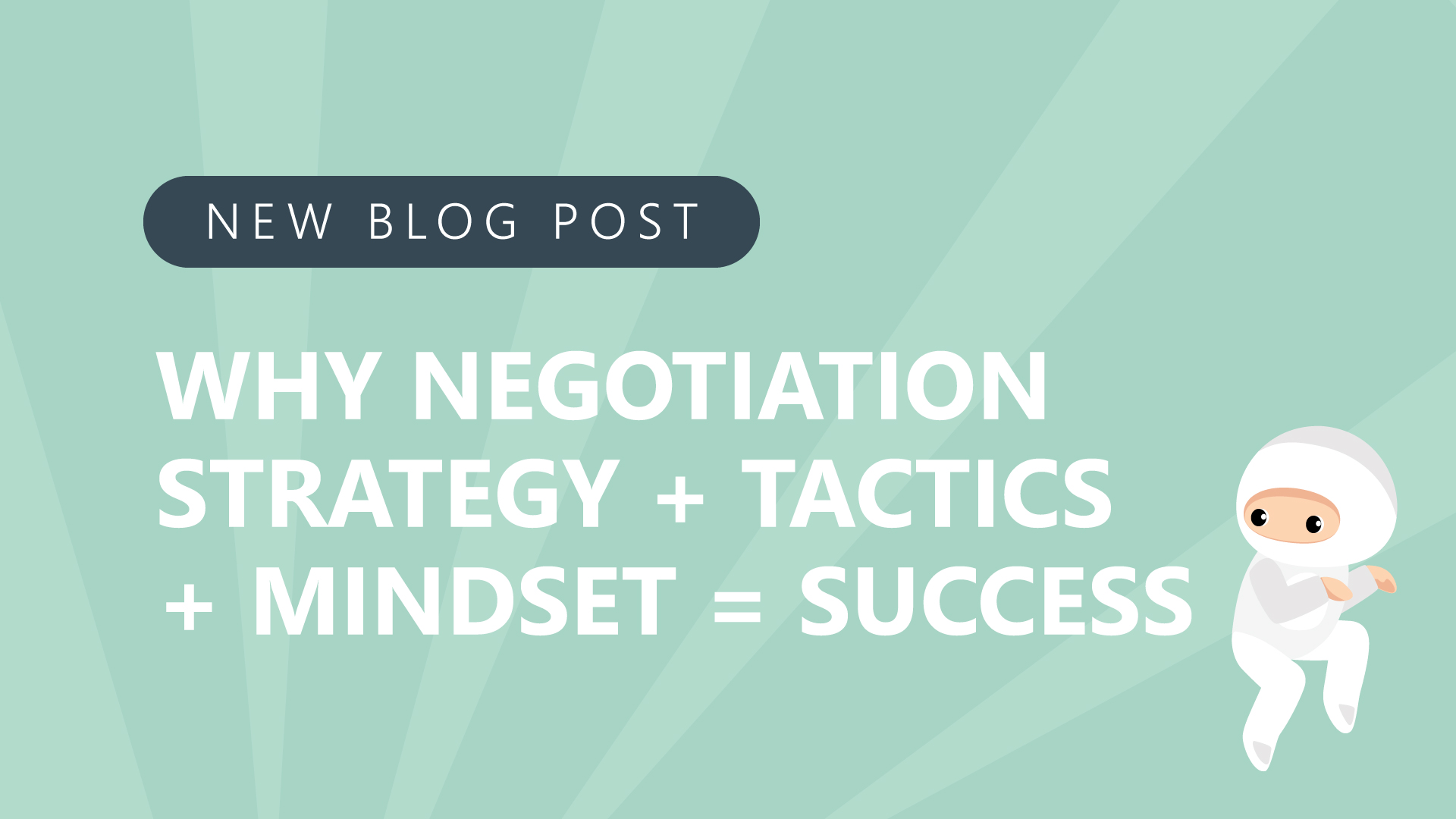Dan Oblinger and Allan Tsang busted some myths about negotiation in a recent episode of Negotiations Ninja. One of the things they point out is that there is no “easy button” when it comes to negotiation. Negotiation is a learned craft that must be cultivated. You need to use the correct combination of negotiation strategies, tactics, and the right mindset.
But aren’t negotiation tactics important?
The major pitfall to being tactics-focused is that you’ll never get to the additional value that strategy can bring you closer to. Allan compares it to trying to climb a wall with a ladder. Without the proper strategy, it’s like putting the ladder in the wrong place. It doesn’t matter how fast you climb if you’re going nowhere.
If you put the ladder in the right place, but you don’t know how to climb the ladder—or climb the ladder well—you’re still going to lose to your competitors. Dan points out that strategy is good, but part of the strategy is ensuring that you have an ongoing program where you’re working on your habits so that you can carry out the strategy.
Without mindset and tactics, negotiation strategies fall short
Allan notes that without the right mindset, strategies and tactics won’t work. If a soldier is fearful about going into battle, you can give him the best strategy and train him in the best techniques and he will still fail. If he’s mentally prepared and has the right mindset to go into battle, but isn’t prepared with the skills of negotiation tactics, he will die.
“Everybody’s got a good plan until they get punched in the face.” — Mike Tyson
Dan goes on to say, “If you want to be coached you’re gonna have to be able to perform the tactics and techniques that you want and you have to execute your strategy in a dynamic arena.”
Why you should role-play negotiations
If you want your organization to succeed and grow in their negotiation roles, put role-playing practice into place. All of the training and coaching in the world is useless if it isn’t put into practice. The best negotiation strategies, tactics, and even the right mindset will fall short if you don’t employ them correctly.
Each week, before you go into battle, roleplay. Roleplay “this is the problem” and “what are you going to do?” You have to be willing to be vulnerable in a room full of your peers and willing to make a fool of yourself. It may involve overcoming your pride and putting your ego aside.
You don’t need a lot of context to demonstrate a tactic or scenario. You just have to understand human aggression and emotion in negotiation. Some of the best value that Dan and Allan offer in their weekly Q&A is spontaneous roleplay. It can be really awkward. Trying out new skills will be awkward and uncomfortable—but the results are so powerful.
The application of knowledge is power
You can listen to a workshop and receive the best negotiation training from top coaches and it will be a tragedy if you don’t put it into practice. If you just listen and don’t act, you’ve just wasted your time. You must properly learn how to strategize and prepare for a negotiation.
You must learn the techniques and tactics and embrace the right mindset. Once you have a hold on all of those things and can use them cohesively, you will begin to see better results in your negotiations. But it doesn’t stop there—you must keep learning and developing your skills.
To hear more about Dan and Allan’s thoughts on negotiation strategies, tactics, and mindset, listen to episode 146 of the Negotiations Ninja podcast.

